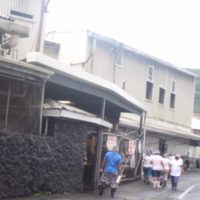
Tha Tautai o Samoa Longline and Fishing Association, comprising owners of locally owned and based longliners, says it is not receiving the support it needs from Starkist Samoa—or not the support it used to receive under the cannery’s previous ownership.
Members of the association met with StarKist officials on Monday to discuss how the cannery could help them survive. A letter summarizing the outcome of the meeting, sent to StarKist’s Director of Procurement, Mr. Joseph Choi, expressed the association’s disappointment with the cannery’s responses.
Signed by the association president, Krista Haleck, the letter states: “We, the boat owners, were once part of the StarKist family, but we do not feel that sense of loyalty or partnership from StarKist anymore, and while this is a business, we always saw StarKist as part of our fishing community. This is not true today.”
The letter also addressed comments made during the meeting: “You stated that all your other suppliers (foreign fleet) are able to continue operations without any help from StarKist and that no one complains. You went further to repeat several times that we, the U.S./American Samoa longline fleet, are constantly complaining.”
One of the issues discussed was the bait situation. The cannery indicated that its bait program has been closed since 2024. The association asked if StarKist could help by storing bait purchased by the fleet. According to the association, the cannery responded that storage as uncertain due to cold storage capacity issues—and that any storage would come at a cost to the fleet.
The Tautai Association also brought up advances and loans, which it said were historically part of StarKist’ support to the fleet. According to the association, this long-standing practice ensured the supply of fish from American Samoa. “Your response indicated that this decision is above your pay grade and is very difficult,” stated the letter.
The association also discussed fish prices, which it said have been low for over a year: “You stated that the U.S. albacore was important, and as such, we inquired about a premium for the U.S. albacore which the American Samoa longline fleet brings in.” The cannery reportedly replied that the local longliners are receiving a premium of $200 for MSC (Marine Stewardship Council) Certification. However, the association pointed out that this premium is not for the U.S. fish that StarKist receives from the American Samoa longline fleet, but it’s for any boat that is MSC certified.
The association also took issue with being compared to the foreign fleet that supplies StarKist Samoa. It said that local longliners are subject to U.S. regulations, bear the costs of delivering fish to the cannery, and treat their crew members like family—”not treat them as slaves, as many foreign vessels do.”
In addition, they support the local community, families, villages, churches and the people of American Samoa.
The association said it recently met with Governor Pulaalii Nikolao Pula to share their concerns, and that the governor has agreed to support the fleet. “We promised him that we would come to StarKist again to seek support,” the letter added.
The association stated that it plans to take their fight to the federal government in an effort to save the last U.S.-flagged fleet in American Samoa.




